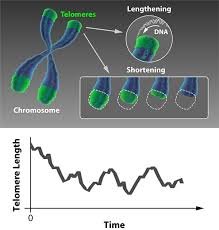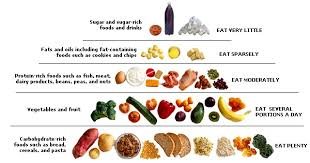DEFEAT ENEMY 1: STRESS
Stress is a part of everyday life. However, studies have found that long-term chronic stress may contribute to accelerated cellular aging and premature ageing of our organs and appearance. Luckily, we can prepare ourselves for the stress to come and buffer against its damaging effect. A recent study from the University of California, San Francisco found that while one cannot stop or prevent stress, its negative effects could be reduced by maintaining a healthy diet, exercising, and sleeping well. This study followed 239 post- menopausal for a year and examined the effect of their lifestyle habits on the telomere length of their immune cells.

(Telomeres are the cap at the end of each DNA that protect our chromosomes. Typically telomere will get shorter with age)
What the researchers found was that for women who were exposed to accumulated stress, but engaged in the healthy behaviours, their telomeres has less shortening than those of individuals who ate poorly, participated in little physical activity, and did not have adequate sleep. This was the first study of its kind to demonstrate that stressful events could accelerate the ageing of the immune cells. Additionally it shows us that we have the ability to curtail this accelerated ageing by making simple lifestyle changes, such as getting adequate sleep, exercise and eating a diet rich in whole grains. fruits, vegetables, nuts, seed, low fat diary and fish.



DON'T LET STRESS SLOW DOWN YOUR METABOLISM
Avoid emotional eating triggered by stress. In another study , researchers examined the detrimental effects of poor dietary habits on our metabolism during periods of high stress. This study was conducted at Ohio State University where researchers evaluated the effect of a single high- fat meal ( equivalent in kilojoules and fat to a loaded tow - party hamburger and french fries) had a lower metabolic rate and burned 435 fewer kilojuoles than the women who were not stressed and ate the same meal. This doesn't soulnd like much, but an extra 435 kilojoules per day can equate to a kilojoules per day can equaute to a 5kilogram weight gain over the course of one year! What this study tells us is that eating healthy is especially important when we're stressed because our metabolism will have much harder time burning of the extra kilojoules.
We know we can't always avoid stressors in our life, but thing we can do to prepare for that is to have healthy food choices in our refrigerators and cabinets so that when those stressors come up, we can reach for something healthy rather than going to a very convenient but high-fat choice."----Dr.Martha Belury, co-author of the study conducted at Ohio State University.
New evidence suggests that choosing high-protein foods may actually affect our body composition as well. A recent randomised controlled overfeeding study,designed to look at where we gain weight on out body, found that there were significant differences between how the body stored its extra kilo joules. 16 healthy individuals were fed a low, normal and high protein diet for eight weeks. Those who consumed normal and high - protein diet stored 45% of their kilo joules as muscles, but the participants on a low protein diet stored 95% of their excess kilo joules as fat. This study shows that the composition of our diets really does impact on how our body respond. In other words you are what you eat.